Digital citizenship involves using digital tools responsibly, ethically, and safely to foster positive online communities.
Teaching digital citizenship in classrooms equips students with skills to navigate the internet respectfully and securely. This article explores its meaning, importance, components, and integration into educational settings to prepare students for a digital future.
What Is Digital Citizenship in Education?
Digital citizenship in education is the responsible and ethical use of digital technologies. It involves using online tools and platforms safely, respectfully, and with integrity.
For parents, directing children toward safe and constructive online behavior is a priority. It involves teaching them digital rights and responsibilities while fostering empathy and caution.

Why Is Digital Citizenship Important?
Digital citizenship raises awareness about cybersecurity, helping students understand the risks of sharing personal information. It also promotes respect, reducing cyberbullying and discrimination, and encourages ethical behaviour aligned with personal values.
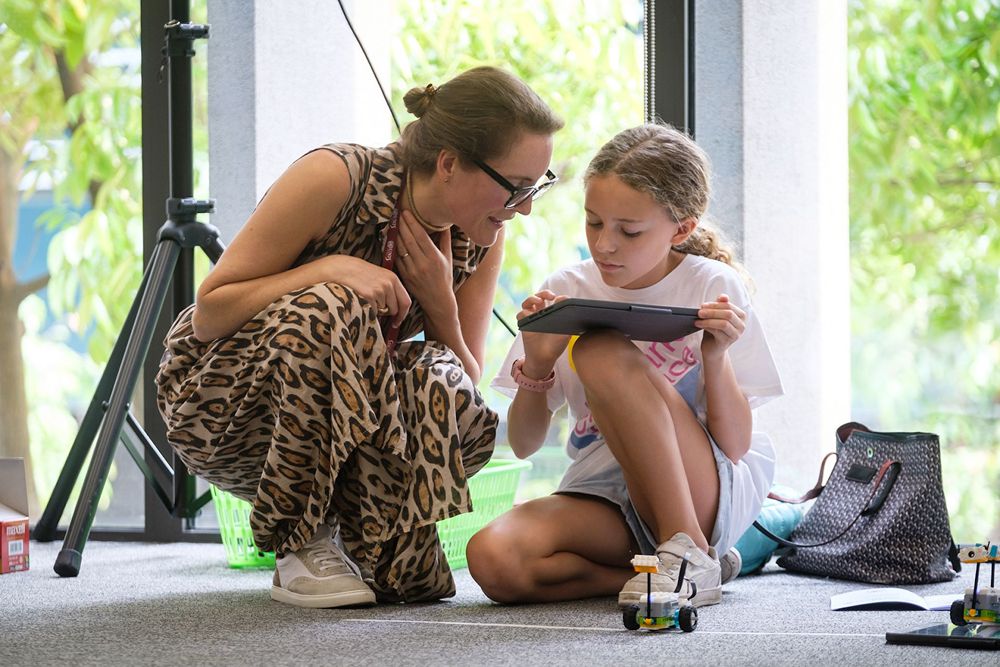
For students, it ensures safety by minimising online risks, fosters integrity in academic work, and prepares them for digital-driven higher education and careers. Moreover, it empowers them to participate responsibly in online societal discussions.
By developing critical thinking and media literacy, digital citizenship enables students to discern credible information, equipping them to navigate the complexities of the digital world confidently.
Components of Digital Citizenship
Digital citizenship comprises several elements that help students navigate the digital world responsibly. These components are essential for parents to understand as they support their children’s online experiences.
1. Digital Literacy
Digital literacy is the foundation of being a capable digital citizen. It involves using technology, such as computers, tablets, and smartphones, to find, create, and share information.
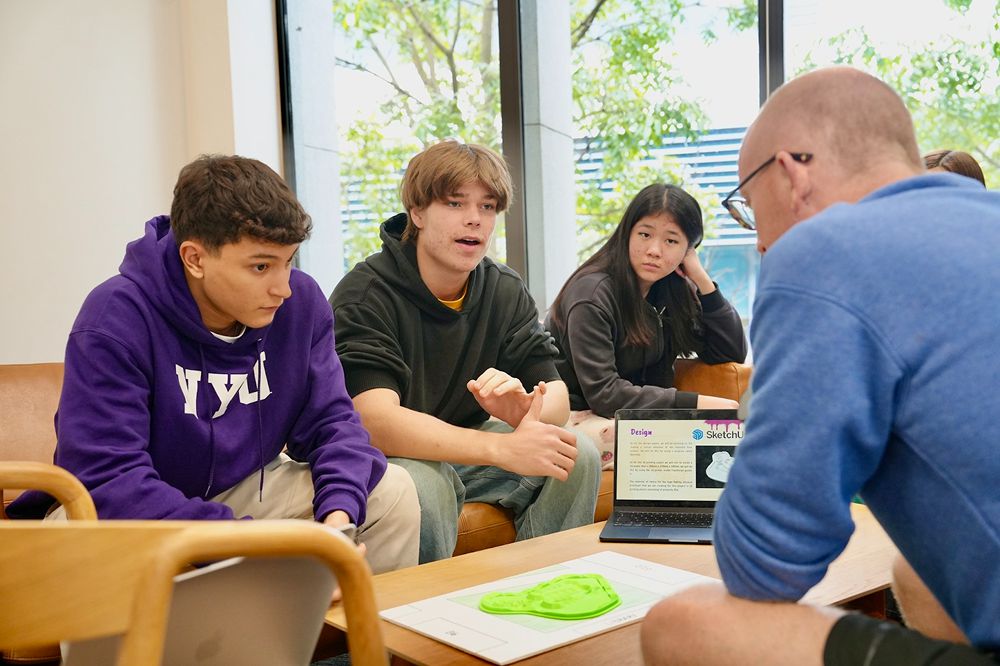
For students, this means learning to browse websites, send emails, conduct research, or even create digital projects like presentations or videos.
By mastering these skills, students can confidently engage with digital tools, understand technology’s role in society, and use it to enhance their learning safely and productively.
2. Cybersecurity
Cybersecurity involves safeguarding personal information and devices from hacking, phishing, and malware. Students learn to create strong passwords, update software regularly, and avoid sharing sensitive details.

Understanding their digital footprint—data created through social media or online activities—helps them control how their information is used, reduce risks of fraud, and ensure their safety in digital spaces.
3. Online Etiquette
Cybersecurity focuses on protecting personal information and devices from online threats, hacking, viruses, and scams, such as phishing.
Parents can teach children to create strong passwords, keep software updated, and avoid sharing sensitive details online. Every click, post, or photo shared creates a digital footprint – a record of their online activity.
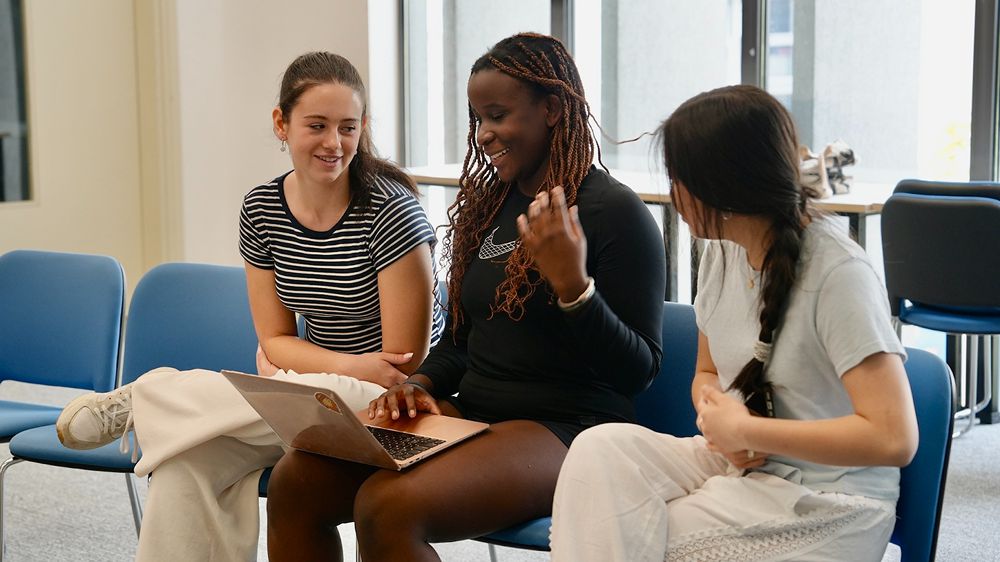
Understanding how to safeguard this information helps students prevent issues like identity theft or fraud. Children gain control over their data by adopting simple security habits and learning to stay safe in digital spaces.
4. Digital Rights and Responsibilities
Digital citizenship includes understanding and respecting online laws and rules, such as privacy rights, freedom of speech, and copyright protections. Students are encouraged to honour others’ privacy, cite sources accurately, and follow copyright guidelines.
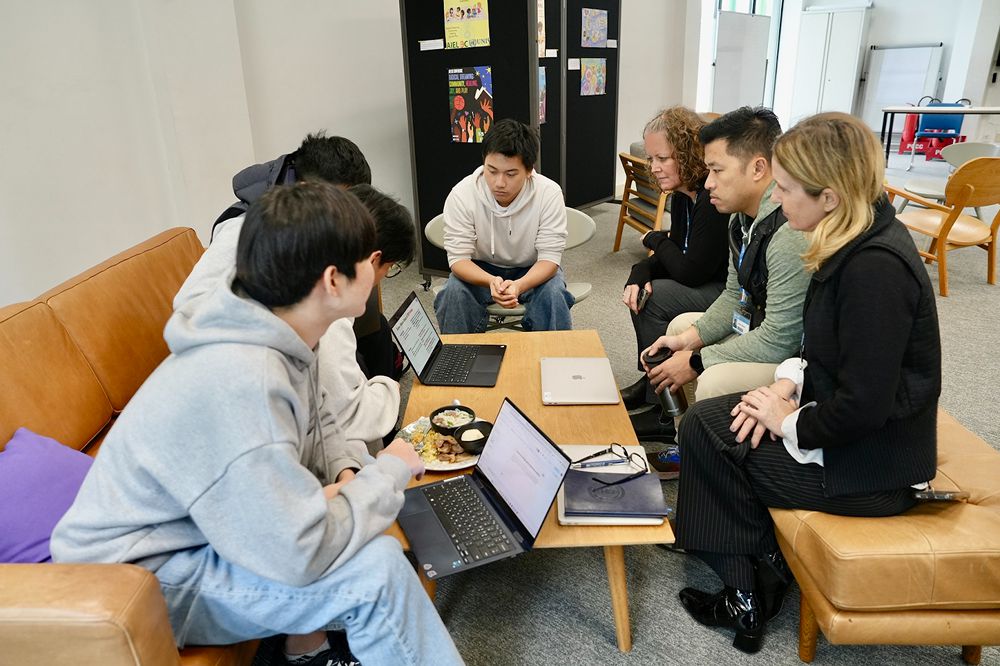
For example, sharing someone else’s photo without permission or spreading false information can have consequences.
By balancing their rights – like expressing opinions – with responsibilities, such as avoiding harmful speech, they contribute to a fair and equitable digital society.
5. Digital Content Evaluation
Evaluating digital content teaches students to think critically about what they see online.
With so much information available, children must distinguish between trustworthy and misleading sources. This practice involves checking who created the content, looking for evidence, and recognising biases.
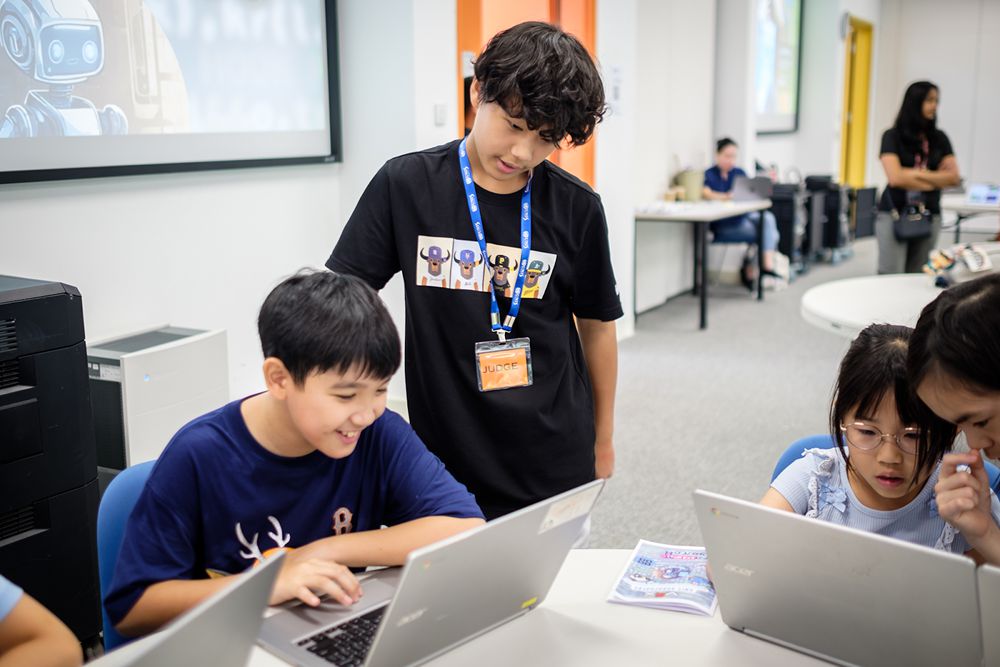
By developing these skills, students learn to make informed decisions, avoid misinformation, and use reliable information for schoolwork or personal growth.
How We Teach Digital Citizenship in Classrooms
Teaching digital citizenship effectively prepares students to thrive in digital environments. Parents can support these efforts by understanding classroom strategies for instilling responsible online behaviour.
- Promote awareness of digital citizenship: We introduce clear policies defining digital citizenship, helping students understand its importance. Our discussions and resources highlight how to engage safely online.
- Model good online behaviour: Our educators demonstrate ethical practices, such as citing sources correctly in digital presentations or respecting data privacy when using online tools. These examples guide students to adopt similar habits in their online interactions.
- Teach digital skills directly and indirectly: Our lessons incorporate digital citizenship through real-world activities. For instance, teachers encourage students to stay relevant and respectful during online discussions. We praise positive actions, reinforcing good habits in authentic digital settings.
- Set and enforce high digital expectations: Rather than rigid rules, UNIS Hanoi focuses on transferable skills, like critical thinking and collaboration. Our clear standards encourage students to take responsibility for their online conduct across platforms.
- Foster a supportive digital culture: Classrooms create environments where respect and responsibility are taught explicitly. Tools like charts help students define what digital citizenship looks, sounds, or feels like. Role-playing scenarios allow them to practise responding to online situations, building confidence and self esteem.
At UNIS Hanoi, we define “what is digital citizenship?” as the ethical use of technology to support students’ well-being and learning. We integrate technology across all subjects, aligning with global standards to equip students with essential digital skills. Our flexible approach encourages collaboration between educators and technology coordinators to embed digital citizenship meaningfully into lessons.
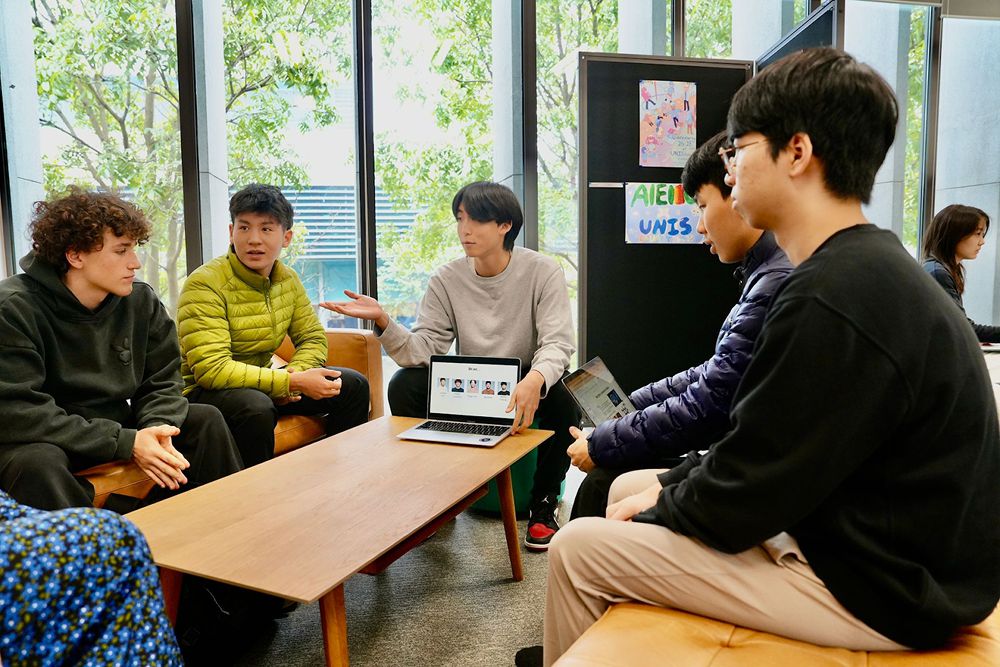
Every student from Grade 2 upwards receives a device – iPads, Chromebooks, or MacBooks – tailored to their needs, while high school students participate in our Bring Your Own Device programme. We ensure safety through Sophos antivirus software and network filtering, protecting students both on and off campus.
All students sign our Responsible Use Agreement, which further reinforces digital citizenship. We prioritise a safe, supportive community, addressing issues like bullying seriously and encouraging students to report concerns.
Additionally, we promote respect for intellectual property by teaching copyright guidelines and encouraging the use of Creative Commons resources, empowering students to be responsible digital citizens.
Foster Digital Citizenship with UNIS Hanoi
Understanding “what is digital citizenship?” prepares students to navigate the digital world responsibly, safely, and ethically. We integrate these principles into our classrooms at UNIS Hanoi to empower students as thoughtful digital citizens.

We invite parents to join our community and support their children’s growth in this vital area. Contact our Admissions Office at admissions@unishanoi.org to apply for the 2025-2026 academic year and discover our supportive environment!
Author Profile

- UNIS Hanoi is ever-evolving, but one thing that remains is our passion to nurture and equip students to be agents of change for a better world.
Latest entries
 UNIS Hanoi Address1 Jan 2026Reflection Questions for Students: A Practical Guide to Deeper Learning
UNIS Hanoi Address1 Jan 2026Reflection Questions for Students: A Practical Guide to Deeper Learning Calendar, News and Publications14 Dec 2025UNIS Hanoi: Leading the Way in Multicultural Environmental Education
Calendar, News and Publications14 Dec 2025UNIS Hanoi: Leading the Way in Multicultural Environmental Education Calendar, News and Publications30 Oct 2025What is an IB School? A Complete Guide for Parents
Calendar, News and Publications30 Oct 2025What is an IB School? A Complete Guide for Parents Calendar, News and Publications29 Oct 2025School Tour at UNIS Hanoi – A Comprehensive Guide for Parents
Calendar, News and Publications29 Oct 2025School Tour at UNIS Hanoi – A Comprehensive Guide for Parents
